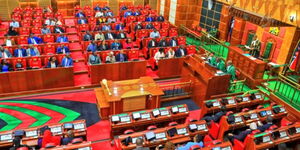In a substantial overhaul to the current system, the Workers' Compensation Fund is set to introduce a range of new provisions aimed at expanding and clarifying the rights of employees who suffer from accidents or occupational diseases in the course of their employment.
Under the bill proposed by the Ministry of Labour, employees incapacitated due to workplace accidents are guaranteed compensation, irrespective of whether the accident was due to the employee's serious or willful misconduct, with specific provisions safeguarding support for total permanent disablement or in cases resulting in the employee's death.
The necessity of these reforms is underscored by alarming statistics from the Ministry of Labour and Social Protection, which report that each year approximately 4,500 individuals suffer from occupational injuries or diseases, with fatal workplace accidents claiming about 150 lives.
Significantly, the amendments propose a more inclusive approach to determining what constitutes a workplace accident. For instance, injuries incurred during conveyance to or from the workplace will now be considered within the scope of employment, broadening the definition to cover a greater range of circumstances including accidents occurring during emergency services performed at the workplace, like firefighting or rescue operations.
In cases where an employee develops a disease directly related to their work environment, the revised Act lays down explicit entitlements to compensation. This marks a crucial step forward in recognising the complexities of occupational diseases, which often manifest long after exposure to harmful conditions.
Furthermore, the proposals stipulate that if an employee's recovery from a work-related disease is hindered by another ailment, the Fund has the discretion to cover medical expenses for the secondary disease as well, potentially easing the financial burden on affected workers.
An essential element of the proposed changes involves the treatment of compensation following the death of an employee. Compensation directed towards an employee's dependents will not form part of the deceased's estate, ensuring direct financial support for the dependents without the complications of estate succession.
Also noteworthy is the introduction of provisions that deem any agreement attempting to waive rights to compensation under the Act as void, reinforcing the protective barrier around the rights of employees against potential exploitation.
The amendments also address the handling of occupational diseases contracted abroad, with employees covered under the same compensatory protections as if the diseases were contracted within domestic borders. This reflects a growing understanding of global workplace dynamics and the mobility of the workforce.
Another forward-thinking inclusion is the protection against threats or coercion aimed at depriving employees of their rightful compensation, with steep penalties including fines of up to five million shillings or imprisonment.
Employers are also mandated to report any workplace accidents or diseases promptly to the Director-General of the Workers' Compensation Fund. This requirement aims to streamline claims processing and ensure timely disbursement of benefits.
The proposals further detail the processes for compensation claims, including the necessity for timely submission by employees or their representatives, and outline rigorous criteria for medical evaluations that claimants must undergo to substantiate their claims.
While the new provisions promise enhanced protections, they also impose stringent penalties for non-compliance, including fines and possible imprisonment for employers who fail to fulfill their obligations under the Act.












